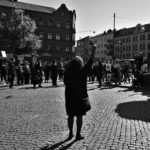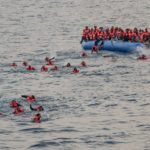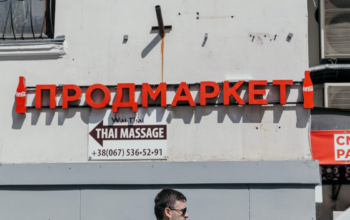On Monday, 15th April 2019, Notre-Dame de Paris burned. While the incident is undoubtedly deplorable, calling it a ‘tragedy for the whole world’ is not only incredibly West-centric but reactions like these shine a spotlight on the hypocrisy of our society.
In a time span of not even four days, large corporations and several wealthy individuals donated a total of €850 million without hesitation. However, what we need is not a symbolic gesture of the 1% or shedding tears for a damaged church certain to be rebuilt, as it should be, no matter how magnificent. What we need is a revolution of priorities, a revolution of compassion and solidarity, which sparks awareness and leads to action.
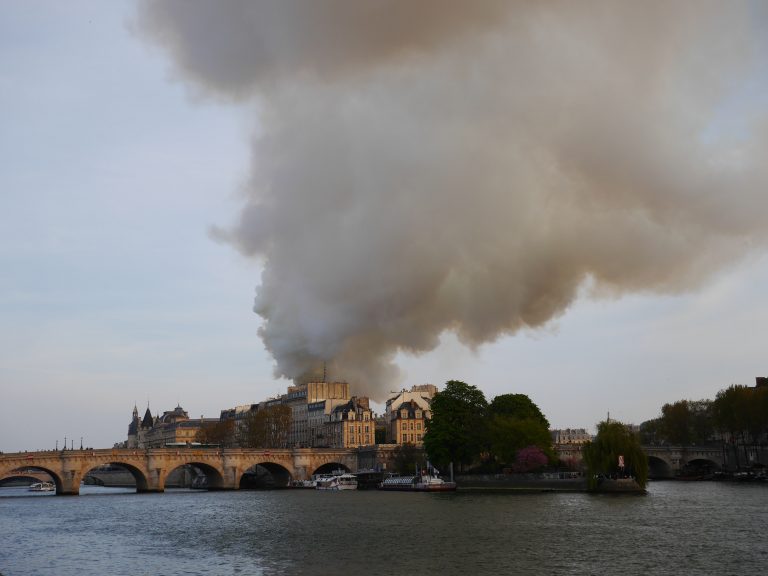
Let’s start at home
While a handful of people possesses the wealth to be able to liberally pledge up to €200 million each, almost 9 million people in France have less than €1026 each month and thus 14% of the population live in poverty, mostly single parent families, unemployed and young people but also farmers and artisans. Many in France have at least heard of people who have to sleep in their cars because they cannot afford rent despite a job. And often the Gilets jaunes, who are taking to the street every week since November 17, 2018, name being out of money by the middle of the month due to the wage-living cost difference as one of the reasons why change is necessary. While, according to an EU statistic cited by Le Figaro, France has one of the lowest poverty (risk) rates in the EU (with the poverty line at 60% of the median income), beating Sweden by 0.9 percent points in 2015, Germany by 3.1 and Spain by 8.5, the statistics do not necessarily represent lived every day experiences.
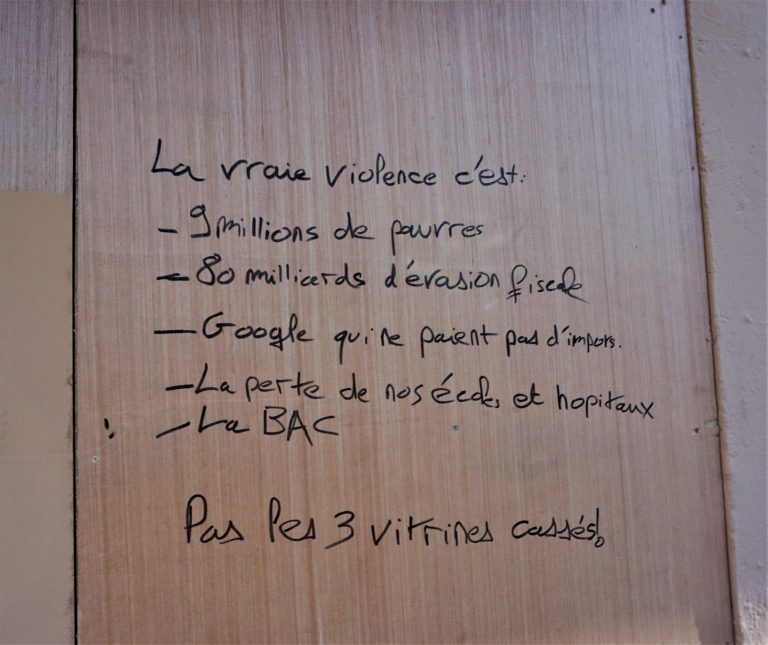
Even further north, in Sweden, overall living standards have risen. However, this mostly applies to the wealthiest 10% while relative poverty is increasing fast. Sweden once had a considerably higher standard of social justice than other industrialised countries but in the last decade the income gap in Sweden was the fastest growing one of 34 OECD countries. It does not mean that the situation is now worse in Sweden than in other industrialised countries but it indicates that Sweden is moving from a poster child of social justice closer towards the rest of the industrialised world. And this trend is further supported by recent tax cuts for the wealthy which have left experts warning that, with many Swedes being increasingly unhappy with public services such as policing and schools, tax cuts might fuel xenophobia and populism.
Democracy and Journalism
Populism is not the only current threat to democracy. In April, Reporters Without Borders published the 2019 World Press Freedom Index. In their report, the organisation states that the situation for journalists has generally worsened, also in Europe – despite it still being the safest continent – due to journalists increasingly having to work in a ‘climate of fear’ and the rising number of attacks on journalists. It is not only politicians who seek to discredit the media, in France several journalists report to have been specifically targeted by police officers during the Gilets jaunes protests.
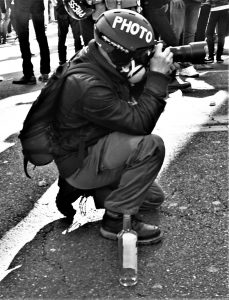 During Act 23 of the Gilets jaunes in Paris on April 20, journalist Gaspard Glanz was arrested and taken into custody for 48 hours. After having been hit by splinters of a tear gas grenade also containing 25g explosives which according to Glanz landed in the proximity of a group solely composed of journalists, he demanded to speak to the commissioner in order to receive an explanation for the incident. One of the police officers thus pushed the journalist back to which he reacted with a rude gesture. It followed the arrest and a, now revoked, ban on being in Paris on the first of May as well as on every Saturday until the trial in October. In an interview with Le Média, Glanz commented that it was not normal that journalists represented 10% of the injured (according to journalist David Dufresne’s count on his twitter account 10.2% by March 30, having increased to 12.9% by May 14) while making up only 1 or 2% of all people present and, in most cases, not having their protective gear confiscated by the police.
During Act 23 of the Gilets jaunes in Paris on April 20, journalist Gaspard Glanz was arrested and taken into custody for 48 hours. After having been hit by splinters of a tear gas grenade also containing 25g explosives which according to Glanz landed in the proximity of a group solely composed of journalists, he demanded to speak to the commissioner in order to receive an explanation for the incident. One of the police officers thus pushed the journalist back to which he reacted with a rude gesture. It followed the arrest and a, now revoked, ban on being in Paris on the first of May as well as on every Saturday until the trial in October. In an interview with Le Média, Glanz commented that it was not normal that journalists represented 10% of the injured (according to journalist David Dufresne’s count on his twitter account 10.2% by March 30, having increased to 12.9% by May 14) while making up only 1 or 2% of all people present and, in most cases, not having their protective gear confiscated by the police.
But the issue is not contained to France alone. It is a general European, and global, trend that shows itself through incidents such as the killing of Jamal Khashoggi as well as those of Daphne Caruana Galizia in Malta and Ján Kuciak and his fiancée in Slovakia, and the excessive and arbitrary imprisonment of journalists in countries such as Turkey. It is also visible in more low-key developments such as the increased verbal abuse and discrediting of the media. It is a trend that, for instance, saw the UK fall on place 40 out of 180, behind Uruguay, Chile and Samoa in Reporter Without Borders’ ranking.
Across the Sea
Increasing social inequalities and worsening conditions for journalist stand in a contrast to the European Union’s (EU) values such as equality, human dignity, freedom and democracy. But even more so does its policy concerning refugees. Article 2(1) of the European Convention on Human Rights states: “Everyone’s right to life shall be protected by law. No one shall be deprived of his life intentionally […]” following article 1 that declares the EU’s commitment to respect human rights which according to the Universal Declaration of Human Rights also includes the “right to life, liberty and security of person” (article 3) “without distinction of any kind, such as race, colour, sex, language, religion, political or other opinion, national or social origin, property, birth or other status” (article 2).
And yet, the EU has abandoned its efforts to save drowning refugees in the Mediterranean and has even gone so far as to criminalise NGOs and civil society groups rescuing refugees and to deny their vessels access to European ports. Iverna McGowan (Amnesty International) commented this development by saying that “EU leaders have chosen to pander to xenophobic governments who are hellbent on keeping Europe closed, and to push even more responsibility onto countries outside the EU.” Meanwhile, French interior minister Castaner is siding with Italian right-wing Deputy PM Matteo Salvini as he accused NGOs of being accomplices of human smugglers. It is an accusation that is not based on facts so much as on La République en Marche’s fight against immigration, counters the director of Médecins sans Frontières, Michaël Neuman.
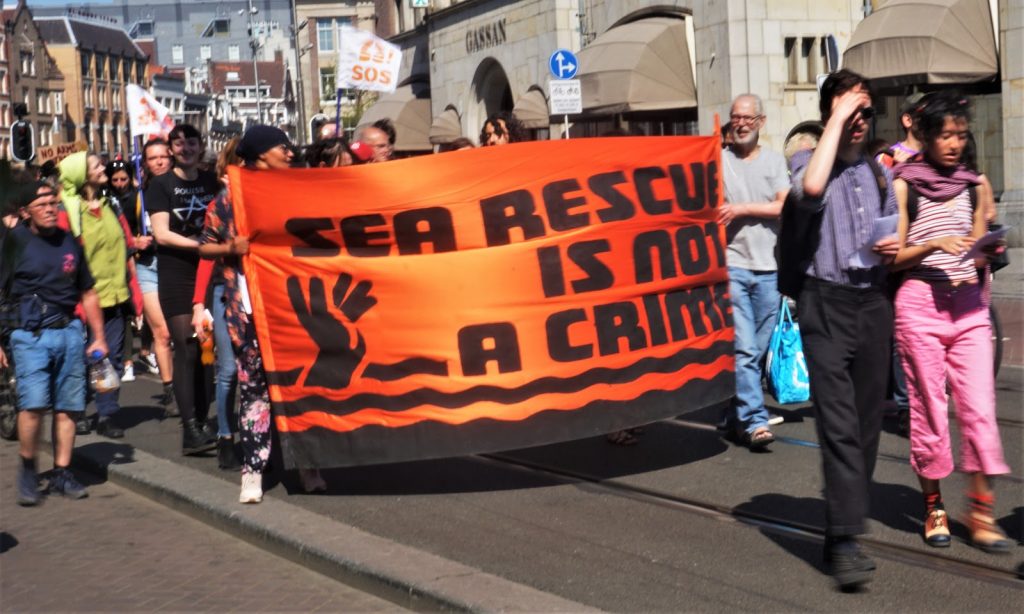
It becomes blindingly obvious, that it is not eras of carefreeness that show our true nation. On the contrary, it is times marked by challenges, inconveniences and crises that reveal the true value we place on human life, dignity, compassion and kindness – and to whom we apply that value and to whom we don’t.
A New Hope
To a certain extent it is understandable that Notre Dame evokes stronger emotions than international – if not global – problems, be it poverty and social injustice, infringements of democratic principles that we so want to belief in, or the death of strangers due to wars that we, by means of arms exports, profit from. It is closer to home, more relatable, easier to process and easier to fix. However, the hypocrisy of painting the accidental burning of a church as a global catastrophe while closing one’s eyes from the real catastrophes calls for a revolution of priorities, a kindling of compassion and solidarity.
There is one thing each of us needs to reflect on – student, politician, bartender, banker, arms producer, accountant, police officer: what can the Notre-Dame incident symbolise? To me the fire of something so old and seemingly eternal, in a world that too often appears to be meant the way it is, shows that a structure thought to last for all infinity can be broken up. There lies chaos and confusion in this destructive force. And yet, it is a creative power because who knows what will happen after. Who knows how we can shift and remodel the debris. Who knows if we cannot construct something even more magnificent. And we have it in our power to do so.
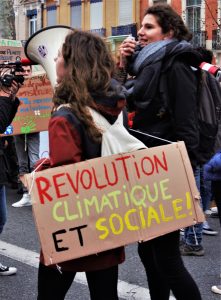 The strongest example of this power at the moment are perhaps environmental movements such as Fridays for Future and Extinction Rebellion. They speak – with urgency but also with hope – of an awakening to challenges superseding the individual in the here and now but applying to all of global society, present and future. At the same time the people of Algeria and Sudan are fighting for their democratic rights, Europe-wide protests against the EU’s refugee policy take place and the Gilets jaunes movement unites concerns for social justice with demands for more inclusion of the people in democratic processes and for more environmental justice. And even the arrest of Gaspard Glanz had positive effects since it resulted in a wave of solidarity expressed by various media channels and journalists and raised awareness on the often precarious situation of independent and young reporters who might not even have a press card.
The strongest example of this power at the moment are perhaps environmental movements such as Fridays for Future and Extinction Rebellion. They speak – with urgency but also with hope – of an awakening to challenges superseding the individual in the here and now but applying to all of global society, present and future. At the same time the people of Algeria and Sudan are fighting for their democratic rights, Europe-wide protests against the EU’s refugee policy take place and the Gilets jaunes movement unites concerns for social justice with demands for more inclusion of the people in democratic processes and for more environmental justice. And even the arrest of Gaspard Glanz had positive effects since it resulted in a wave of solidarity expressed by various media channels and journalists and raised awareness on the often precarious situation of independent and young reporters who might not even have a press card.
At times the injustices and horrors of our society might seem overwhelming, and thus mentioned in this article are only a few and very much focused on Europe. Simultaneously, Venezuela is shaken by conflict, the war in Yemen is still ongoing, the suffering of the Rohingya has not ceased, … But amidst all this, it is more important than ever to not walk through this world with an averted view but to meet all tragedy and challenges with compassion and kindness, with courage and solidarity, and to take hope from every positive development, however small, and from the knowledge that we are not alone as we decide to walk this path.
by Merle Emrich
Photo Credits
Smoke of Notre-Dame, Nina Kolarzik, All Rights Reserved
La vraie violence, Merle Emrich, All Rights Reserved
Photojournaliste, Merle Emrich, All Rights Reserved
Sea Rescue Amsterdam, Merle Emrich, All Rights Reserved
Révolution climatique et sociale, Merle Emrich, All Rights Reserved



